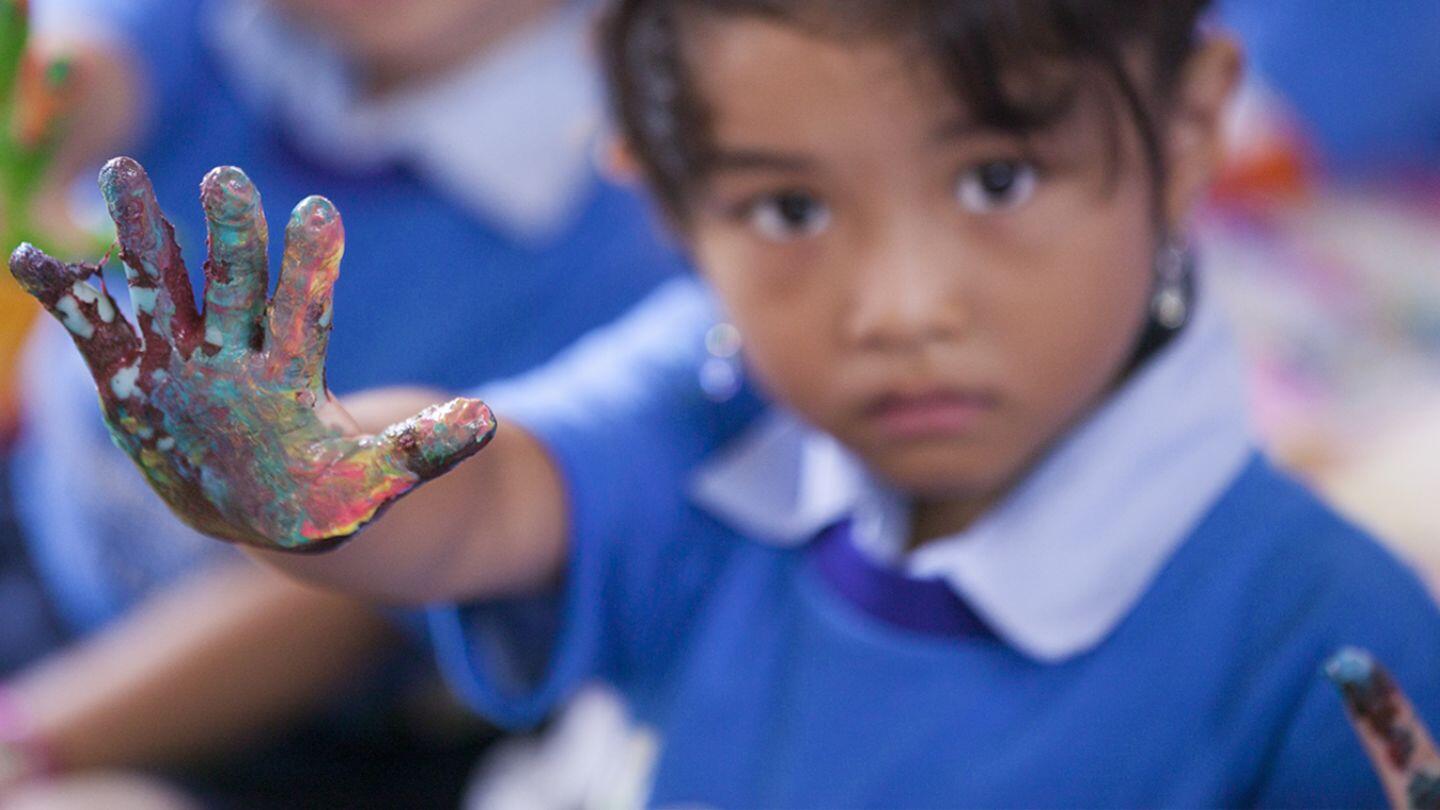Since the 2013 Basic Health Research (Riskesdas) which recorded that 51.2% of girls in Indonesia aged 0-11 years experienced female genital mutilation/cutting (FGM/C) was released, UNFPA and partners have made various efforts to end this harmful practice.
UNFPA has supported the Government of Indonesia and partners in realizing the Sustainable Development Goals (SDGs) by 2030, particularly Goal 5: gender equality and target 5.3: eliminating harmful practices against the bodies and health conditions of women and girls, such as child marriage, forced marriage, and FGM/C.
For over a decade, the joint advocacy to protect women and girls in Indonesia from the harmful practice of P2GP has achieved important milestones as follows (this list will be updated continuously):
2013:
The Ministry of Health announced the results of Basic Health Research (Riskesdas) which found that 51.2% of girls in Indonesia aged 0-11 years had experienced FGM/C. Riskesdas 2013 confirmed that FGM/C was practiced in all 33 provinces in Indonesia, and identified 7 provinces with the highest prevalence: Gorontalo, Bangka Belitung, Banten, Riau, South Kalimantan, West Java, and West Sulawesi.
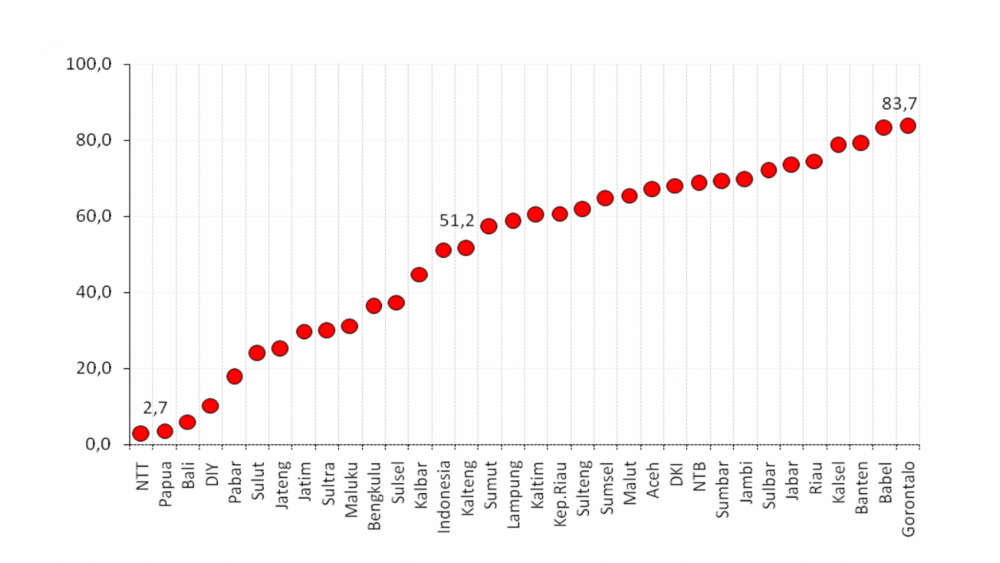
2014:
The Ministry of Health issued a Health Decree (No. 6/2014) which revoked the 2010 decision (Article 1). The reason is that FGM/C poses risks in the process and is not part of a health or treatment procedure (State Gazette of the Republic of Indonesia, 2014 No. 185).
2015:
UNFPA organized an international seminar and national discussion on FGM/C to discuss the topic from social, cultural, religious and health perspectives. This seminar was critical in bringing together various views of religious intellectuals, cultural experts, social experts, and health experts regarding FGM/C.
2017:
UNFPA, Population and Policy Study Center (PSKK) of Universitas Gadjah Mada (UGM), and the National Commission on Violence Against Women (Komnas Perempuan) with support from Australia’s Department of Foreign Affairs and Trade (DFAT) conducted an assessment of the medicalization of FGM/C in 17 districts/cities in 10 provinces in Indonesia. - link
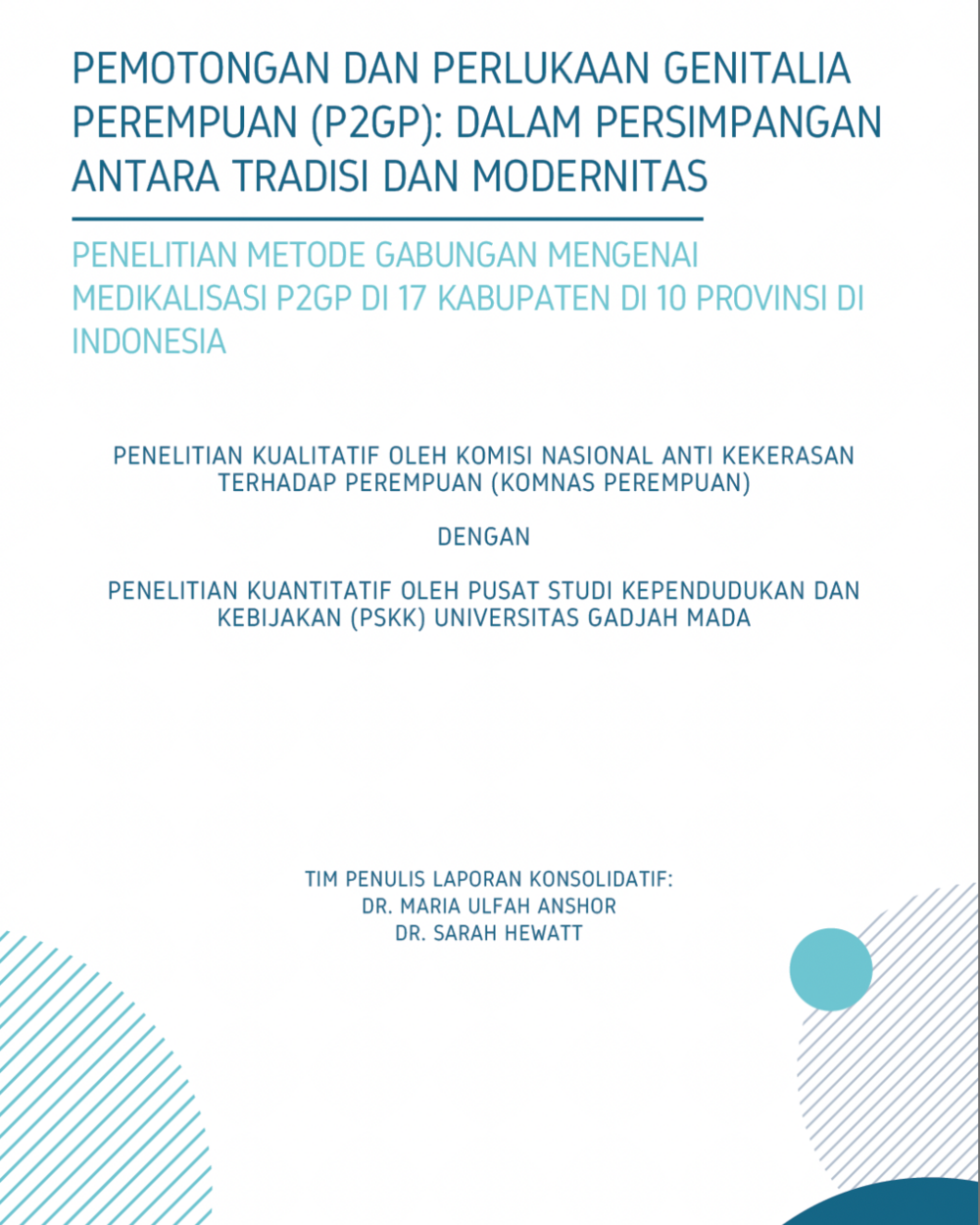
2018:
- The term “pemotongan dan pelukaan genitalia perempuan (P2GP)”, the Indonesian translation of “FGM/C” officially comes into use, replacing the more commonly used “sunat perempuan” which translates as “female circumcision”.
- The Ministry of Women’s Empowerment and Child Protection (KemenPPPA), with UNFPA’s support, held a National Meeting of Islamic Boarding School Ulama and Islamic Organizations in Bogor. This meeting resulted in Risalah Bogor, a treatise that states that circumcision is a makrumah or an honorable gesture for women; which does not contain a command. This action can be permissible, and can even become haram if it is harmful.
2019:
The pilot project on the prevention of gender-based violence and harmful practices using a gender transformative approach (male involvement) and an ecological approach in North Lombok started for a completion in 2021.
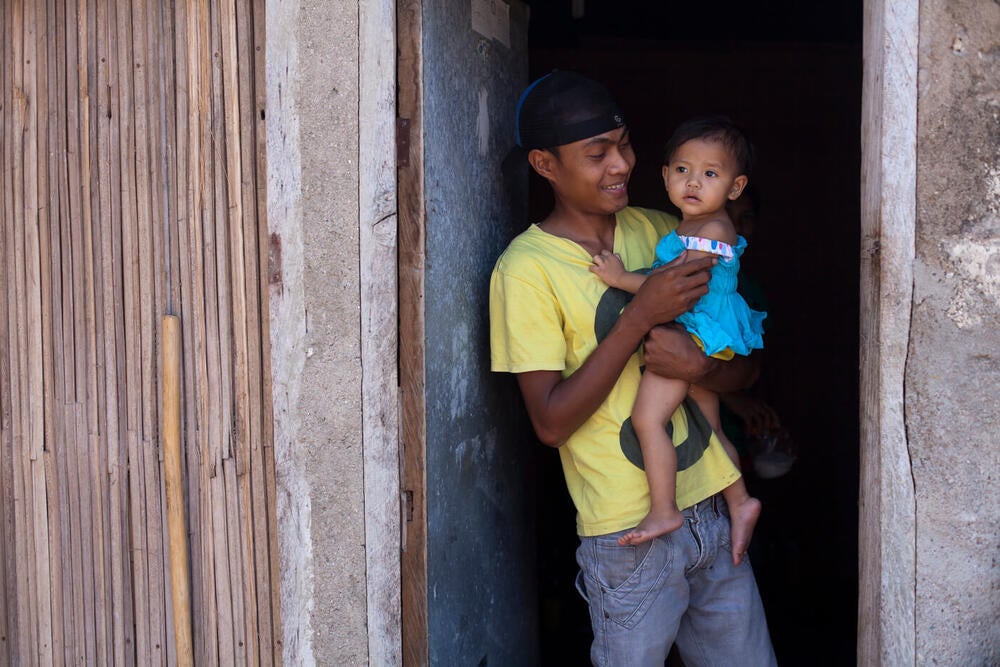
2020:
KemenPPPA, with UNFPA’s support, developed the 2030 FGM/C Prevention Road Map and Action Plan.
2021:
The second violence against women survey, the 2021 National Women’s Life Experience (SPHPN) conducted by KemenPPPA and BPS-Statistics with UNFPA’s supported included FGM/C data for the first time. The 2021 SPHPN found that 55 percent of daughters of women aged 15-49 years who live together in Indonesia have undergone FGM/C.
2022:
The Indonesian Women Ulema Congress (KUPI) released their religious view and stance on FGM/C, which says, “The law of conducting female genital mutilation or cutting (FGM/C) without medical reasons is haram (forbidden, ed.). All stakeholders are responsible for preventing FGM/C without medical reasons. And the law for religious leaders, community leaders, health workers, and families to use their authority to protect women from the harms of FGM/C without medical reasons is obligatory,” during the second KUPI congress in Central Java in November 2022.
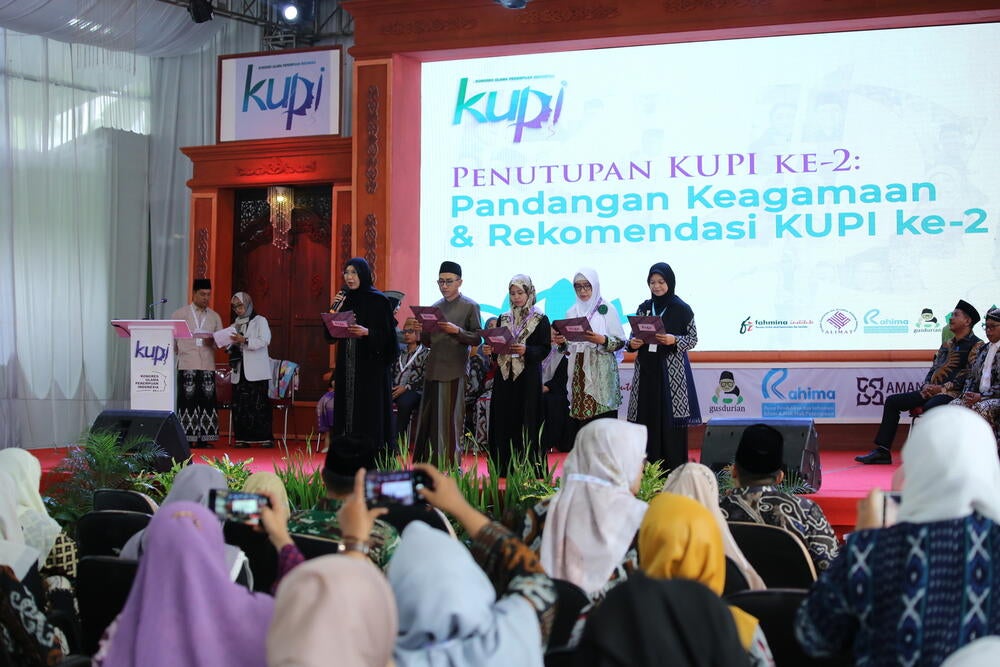
2022-2023:
The FGM/C prevention project by the Ministry of Health, the Indonesian Midwives Assocation (IBI), and Aisyah, was piloted in Gorontalo, West Java, and Banten.
2023-2024:
UNFPA supported the National Commission on Violence against Women (Komnas Perempuan) in developing monitoring tools for the implementation of the 2030 FGM/C Prevention Road Map and Action Plan in three provinces with highest prevalence in Indonesia.
2024:
- UNFPA supported the Ministry of Health’s FGM/C prevention project in two out of five provinces (Central Java and West Nusa Tenggara-NTB), and monitoring interventions in previous pilot areas: Riau, NTB, and Central Sulawesi.
- IBI issued a circular in February 2024 that calls for the elimination of FGM/C and forbids midwives from practicing it.
- The Government Regulation No. 28/2024 on the implementation of the Law No. 17/2023 on Health (UU Kesehatan) was issued in July 2024, which stipulates the elimination of the FGM/C practice.
Find out more about the collective efforts to end FGM/C in Indonesia here.

